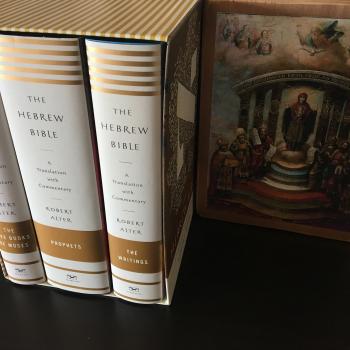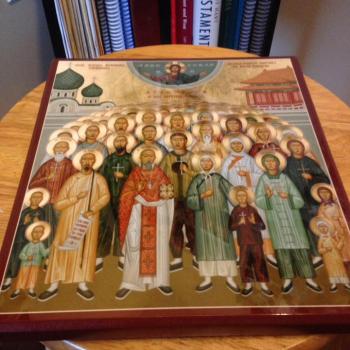With the resignation of Bob Coy from Calvary Chapel Fort Lauderdale (reportedly the fourteenth largest megachurch in the United States – props to Sarah Pulliam Bailey), the arguable question perhaps is: when is all of this evangelical scandal going to stop?
What I’ve attempted to do on this blog is to place some of these happenings in the larger context of the private consensus, the tacit agreement in American religion that church stuff should always be taken care of in house and outside of the public eye. I hope I’ve shown that the unraveling of the private consensus is not limited to evangelical churches and that, far from what Coy’s resignation may suggest, is not limited to sex. While there has been ample discussion of millennial evangelicals ‘getting high’ church due to the involvement of evangelicals in the culture wars, unfolding events over the past two decades in the Roman Catholic Church, the Orthodox churches, and the Anglican Communion suggest that the private consensus has not left these arenas untouched.
And yet, the resignation of Bob Coy from Calvary Chapel Fort Lauderdale does strike a raw nerve. This is because of the symbolic importance of the term ‘Calvary Chapel’ in American evangelicalism. While it can certainly be argued that many who are influenced by Calvary Chapel have never heard of it, that #TPCIU is hitting close to the source of the private consensus should not be understated.
In fact, Coy’s resignation is an opportunity for public education about the importance of Calvary Chapel.
There is quite a bit on my plate at the moment, so I will have to leave this post as a mere suggestion for further education. Fortunately, there are many opportunities to do just that. If you learn best from documentaries, you could watch one of Calvary Chapel official documentaries A Venture in Faith to What God Has Wrought, and you could compare that to David DiSabatino’s Frisbee: The Life and Times of a Hippie Preacher. It’s very convenient that the 2014 Christianity Today Book of the Year award has gone out to God’s Forever Family: The Jesus People Movement in America. You can Spotify names and bands like Kelly Willard, Rita and Paul Baloche, Lenny LeBlanc, Chuck Girard and LoveSong — heck, the Maranatha Praise! series, volumes 1-20, are all there for free! If you grew up in evangelical circles, you can reminisce about Psalty the Singing Songbook and Charity Churchmouse.
The point is, if you have ever so much seen something called a ‘worship band’ with a guitar, you have seen the influences of Calvary Chapel.
In fact, it can be argued that Calvary Chapel is where sociologists like Donald Miller and Tanya Luhrmann and geographer Justin Wilford derived the term ‘new paradigm evangelicalism.’ Drawing from the ‘new paradigm’ accounts of the religious marketplace developed by R. Stephen Warner, Rodney Stark, Roger Finke, Larry Iannacone, et al., these sociologists argue that in the latter half of the twentieth century, there arose a new kind of evangelicalism that was marked by an emphasis on the individual (i.e. me and Jesus all the way) with a therapeutic focus (i.e. using words like ‘healing’) that was also antiestablishmentarian (i.e. don’t let the institution get in the way). Pointing to forerunners like Calvary Chapel, Hope Chapel, and the Vineyard Movement, Miller, Luhrmann, Wilford, and others argue that later developments like the American megachurch developed this ‘new paradigm’ culture that has permeated American evangelicalism.
That new paradigm is a private paradigm.
There are a series of questions that could be asked about this:
- How different is the resignation of Bob Coy from the influence of Lonnie Frisbee on the Calvary Chapel and Vineyard Movements? To what extent is the figure of Frisbee important to the private consensus?
- Because this news first broke on Alex Grenier’s Calvary Chapel Abuse blog, to what extent is Grenier and the lawsuit surrounding his allegations of abuse against his stepfather and the Calvary Chapel system symptomatic of the unraveling of the private consensus? Given the stated autonomy of Calvary Chapel congregations and the antiestablishmentarism of the new paradigm, at what level is the Coy resignation connected with the Grenier case?
- Given the connections between Mark Driscoll’s Resurgence and Calvary Chapel pastors like Coy and Greg Laurie, to what extent are New Calvinist movements related to the Jesus Movement, and to what extent should they be theorized as part of the new paradigm?
In short, the importance of Calvary Chapel to the private consensus should not be understated.
The private consensus is unraveling. #TPCIU















